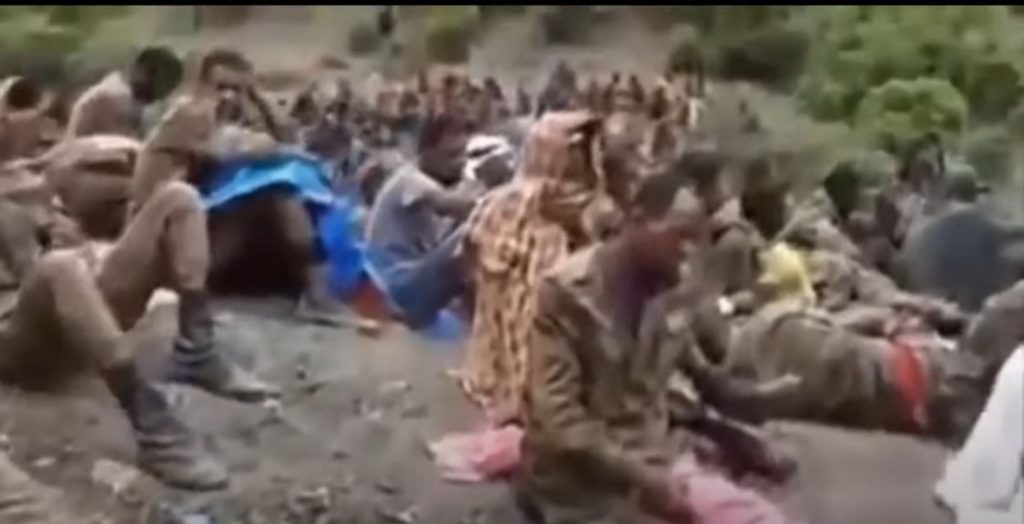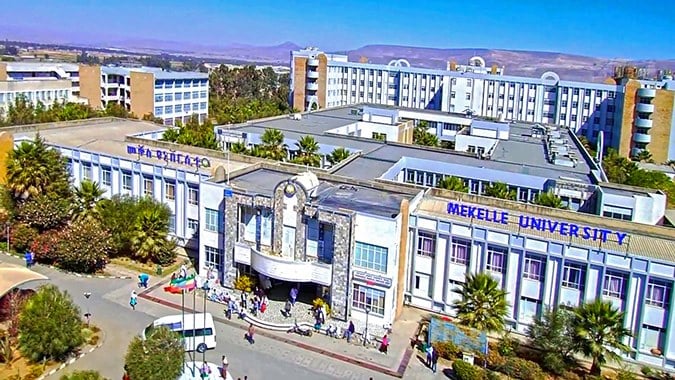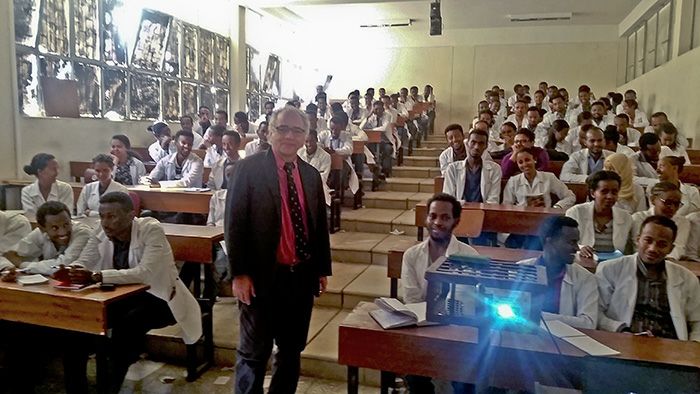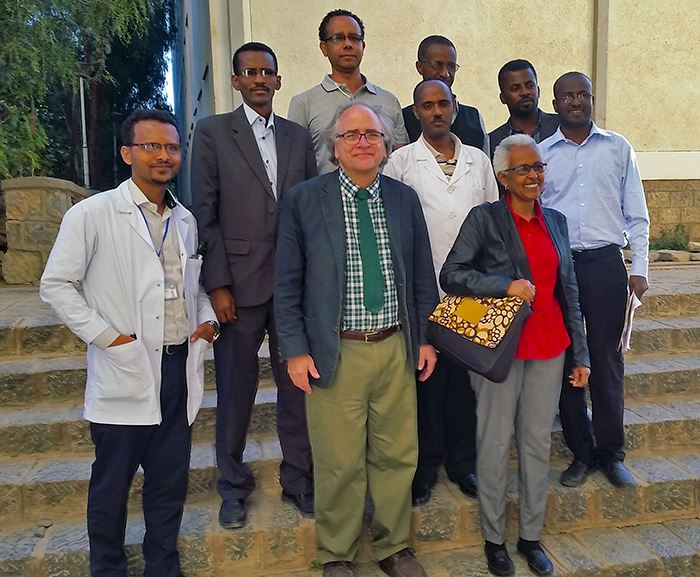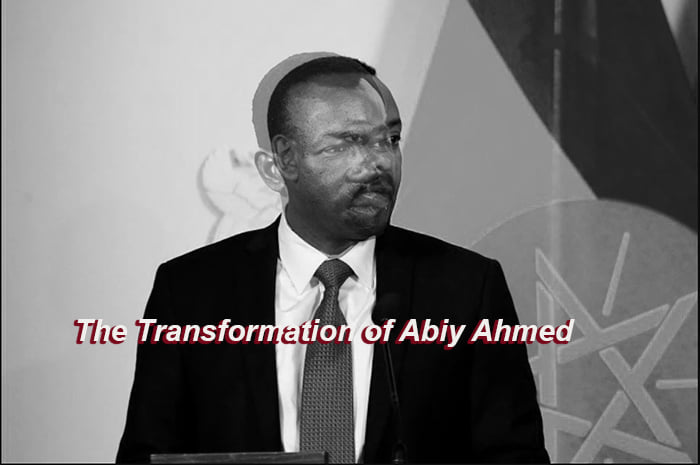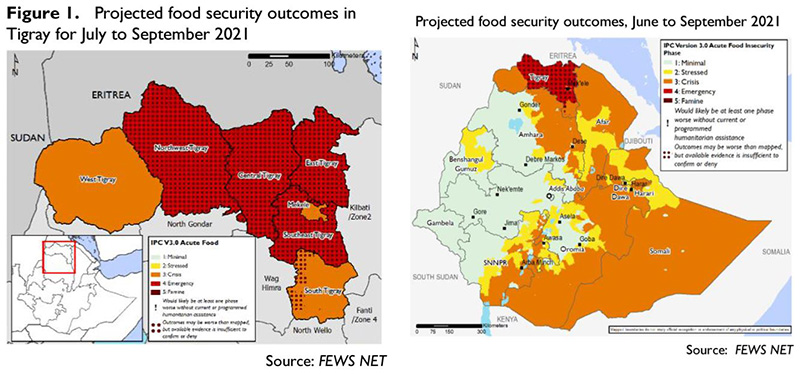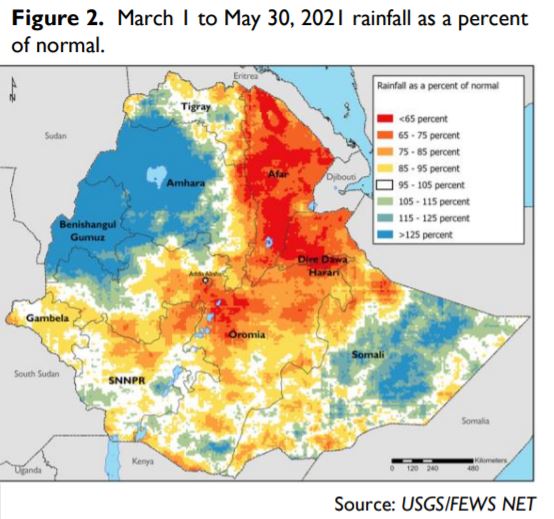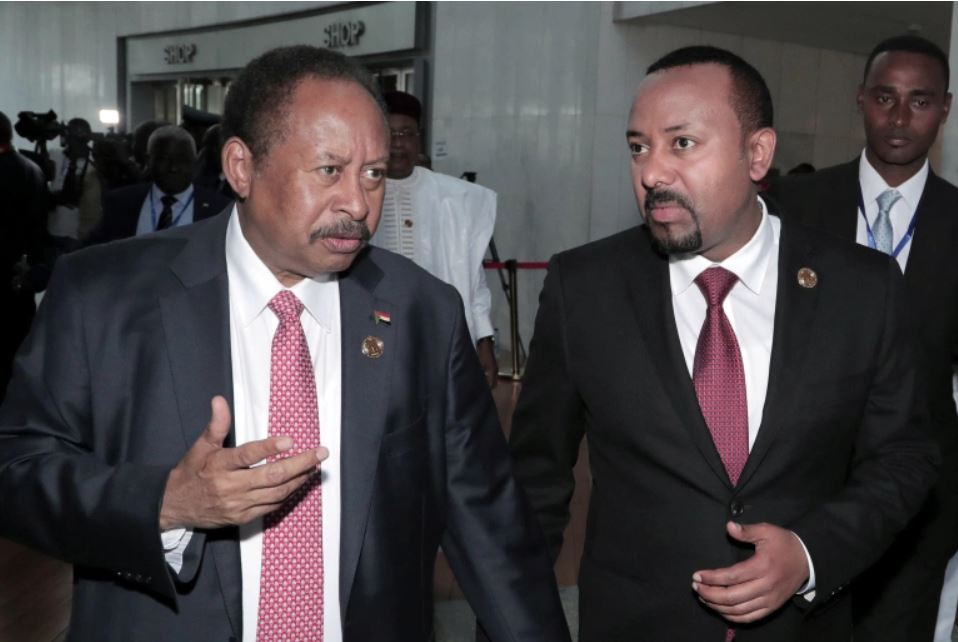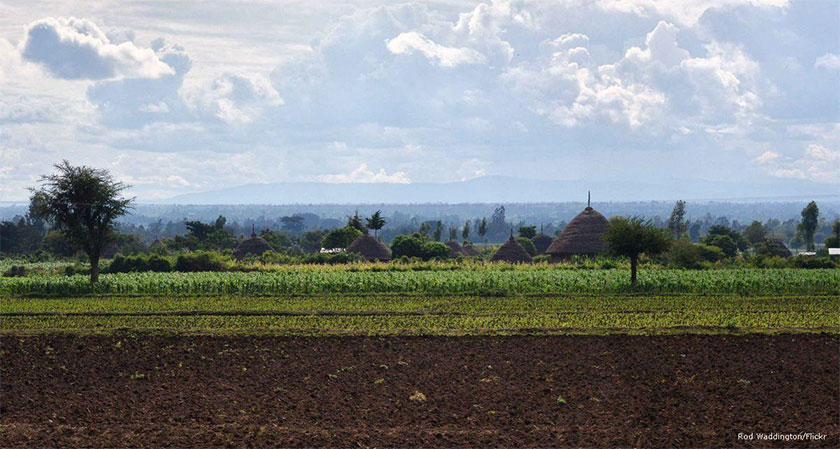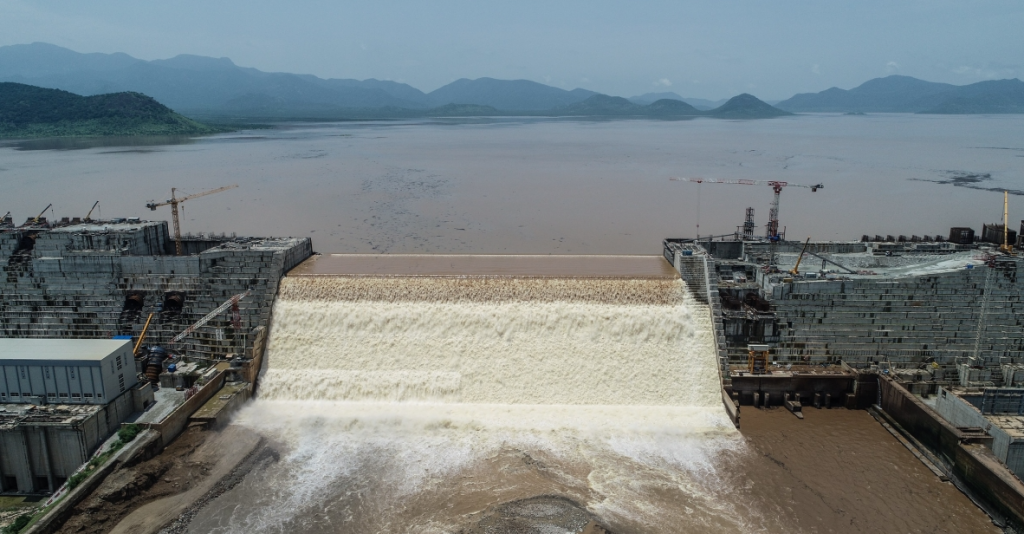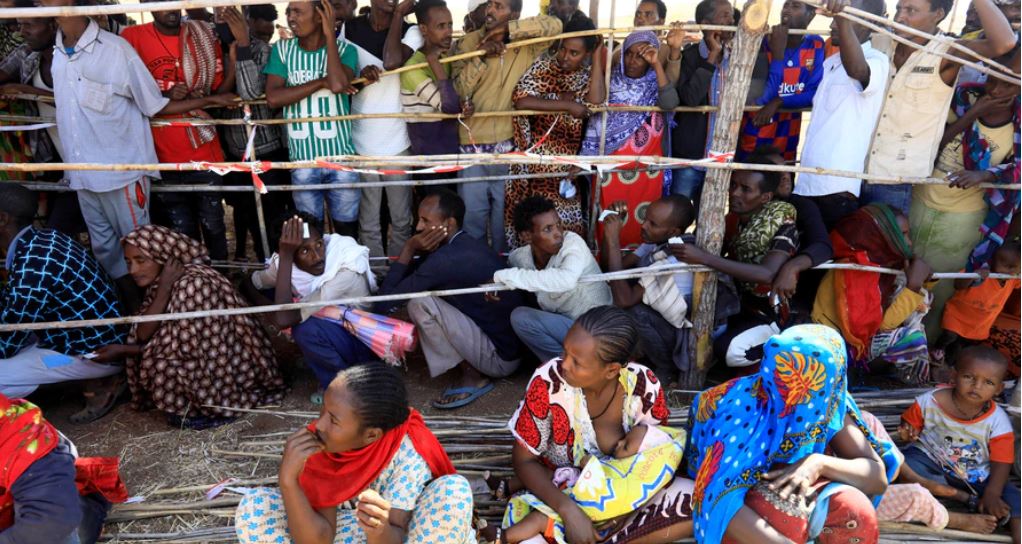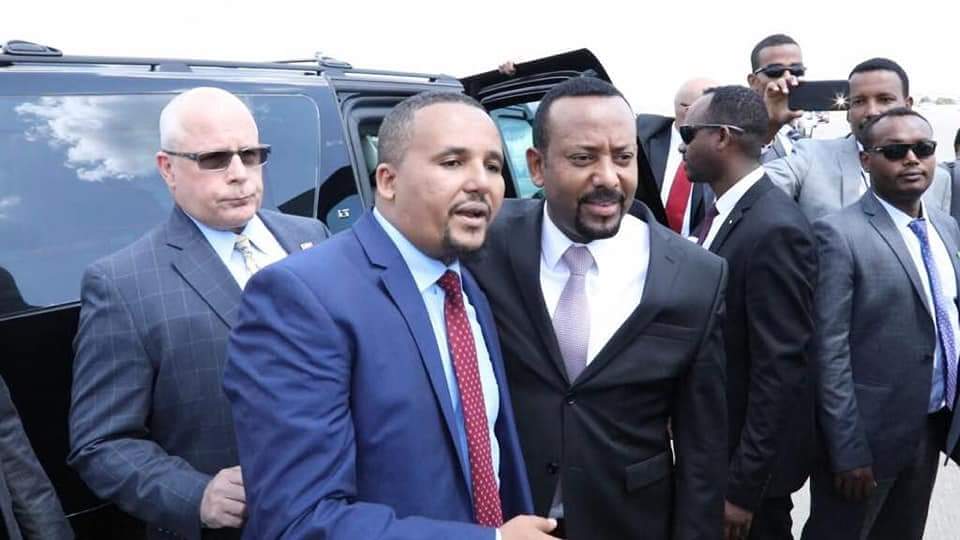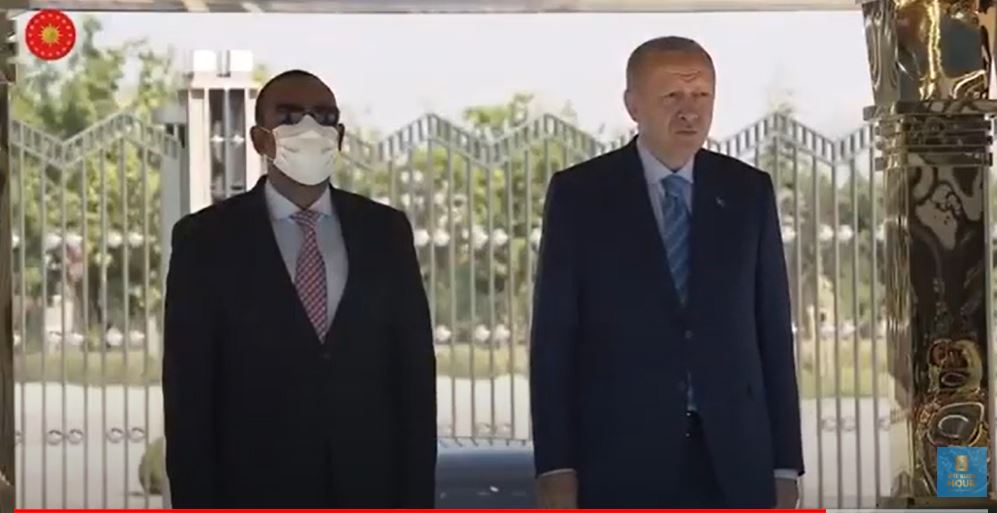
At this moment multiple sources report Oromo Liberation Army elements are fighting in the neighborhood near Entoto Mountain on the edge of Addis Ababa just a short distance from the airport. At the same time Prime Minister Abiy Ahmed made a hasty visit to see the President Erdoğan of Turkey. The Tigray Defense Force continues to advance toward both Bahir Dar and Gondar while also pushing into Western Tigray. The supply of weapons and trained combat soldiers seems to have run out for the Amhara militias trying a last stand near Bahir Dar and Gondar.
Meanwhile Germany and the United States are setting up to increase sanctions on the Ethiopian government. Many are asking will the Prime Minister be able to come back if a take over of Addis is imminent?
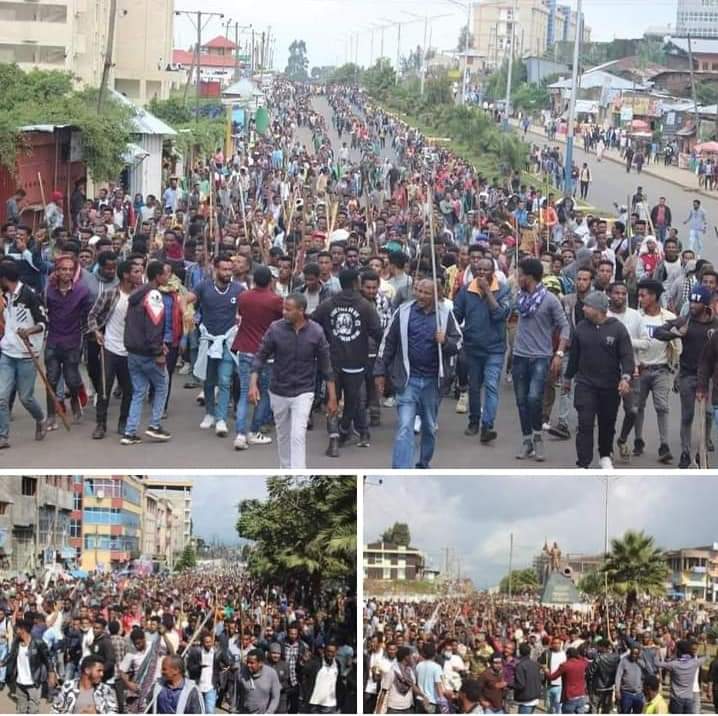
Assuming for the moment his Prosperity Party will stay in power at least for a while recent diplomatic actions or lack there of predict poor relations with the United States. The snubbing of USAID Head Samantha Powers last week and now Jeffrey Feltman, the Special Envoy for the Horn of Africa, by Abiy Ahmed, Prime Minister of Ethiopia, raises the high likelihood that Ethiopia will be declared in violation of the AGOA which allows Ethiopian exports to the USA in hundreds of millions of dollars. Should the Ethiopian government survive which many seem to doubt at this point Ethiopia .
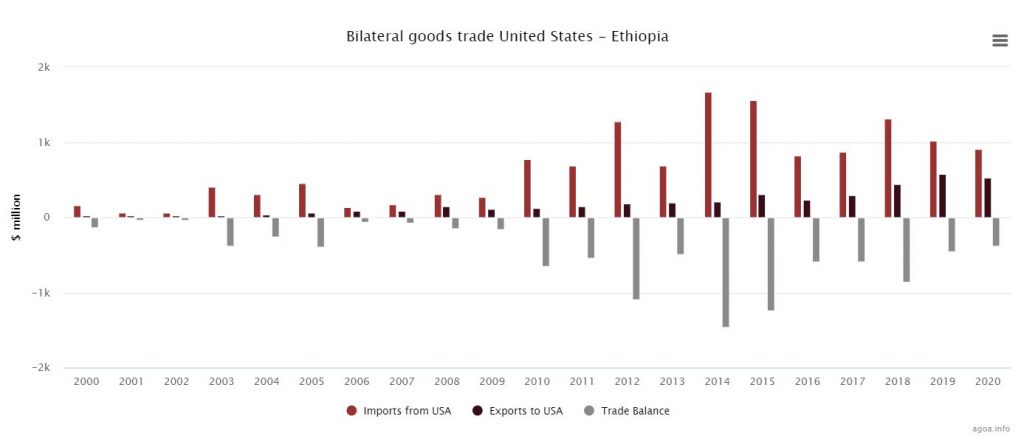
The United States State Department requests for peace talks with the Tigray Peoples Liberation Front by the Ethiopian government have been soundly rejected as well as requests for military forces invading Tigray to withdrawal, restoration of power, internet, access of aid and investigatory bodies to be allowed to enter Tigray. Growing impatience with the American State Department as well as members of Congress who have passed several resolution condemning the treatment of Tigrayans and the atrocities attributed to the Ethiopia and Eritrean fighting forces have resulted in no response.
U.S. total imports of agricultural products from Ethiopia totaled $151 million in 2019. Leading categories include: unroasted coffee ($130 million), nursery products ($6 million), spices ($3 million), planting seeds ($357 thousand), and wine and beer ($271 thousand)
Only 9% of total imports to Ethiopia come the United States. Ethiopia main imports are: foodstuffs, textile, machinery and fuel. Ethiopia main trading partners are: China (18 percent of total imports), Saudi Arabia (13 percent), Russia and India (9 percent)
The African Growth and Opportunity Act of 2001 gave Ethiopia a chance to export 1800 different products to the United States duty free. However to participate in AGOA To meet AGOA’s there are strict eligibility requirements including ” countries must establish or make continual progress toward establishing a market-based economy, the rule of law, political pluralism, and the right to due process. Additionally, countries must eliminate barriers to U.S. trade and investment, enact policies to reduce poverty, combat corruption and protect human rights.”


